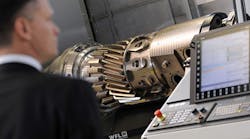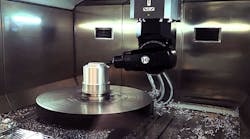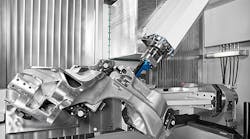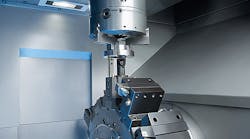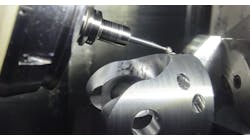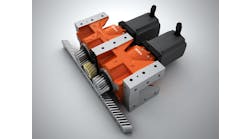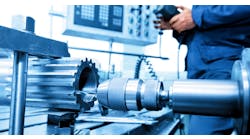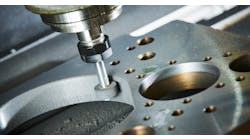Fourth-quarter data on new machine tool orders revealed an end to eight consecutive quarters of expansion for the Italian machine tool industry, one of the largest in the world. The results delivered by UCIMU - Sistemi per Produrre, a confederation of designers and manufacturers of machine tools as well as automation products, show the reversal is due to declining orders from foreign buyers, while domestic orders for machine tools continued to increase.
UCIMU indexes its results, using the 2010 average quarterly figure as a baseline (2010 – 100.00.) On that scale the October-December 2015 results showed an overall 4% decline in new orders to 132.9.
New machine tool orders from foreign buyers were valued at 126.0 for the fourth quarter, down 6.5% versus the October-December 2014 period.
New machine tool orders from domestic (Italian) buyers were valued at 174.4, up 6.8% versus the October-December 2014 period.
For the full year, 2015, UCMI noted that new orders rose 8.6% over 2014 results, to 128.7 – a result it attributed to overall improvement in bot foreign orders (+6.7%) and domestic orders (+18.1%.)
“Certainly, the results achieved in 2015 are satisfactory and foster a positive outlook for these early months of 2016,” according to Luigi Galdabini, president of UCIMU.
“But,” he continued, “if on the one side the annual average index registers a minor increase, as against the one last year, on the other, the absolute index is still far from those typical of the pre-crisis period (i.e., prior to 2009.) These indicators demonstrate that the lost ground has still yet to be recovered. And it is also for this reason that recovery must not come to a standstill right now.”
The association president made a specific example of the need for Italian manufacturers to continue investing in new production systems, noting a government survey that found the average age of production machinery at Italian enterprises is about 12 years and eight months: the oldest ever registered in forty years of surveying. About 30% of machinery installed is over 20 years old.
“This data,” continued Galdabini, “demonstrates that the Italian industrial system’s competitiveness inevitably risks losing ground, also because industries in emergent countries are, in the meantime, equipping themselves with new generation systems and technologies. In this scenario the danger of the new phase in recovery coming to a standstill is already making everything even more worrying.”
